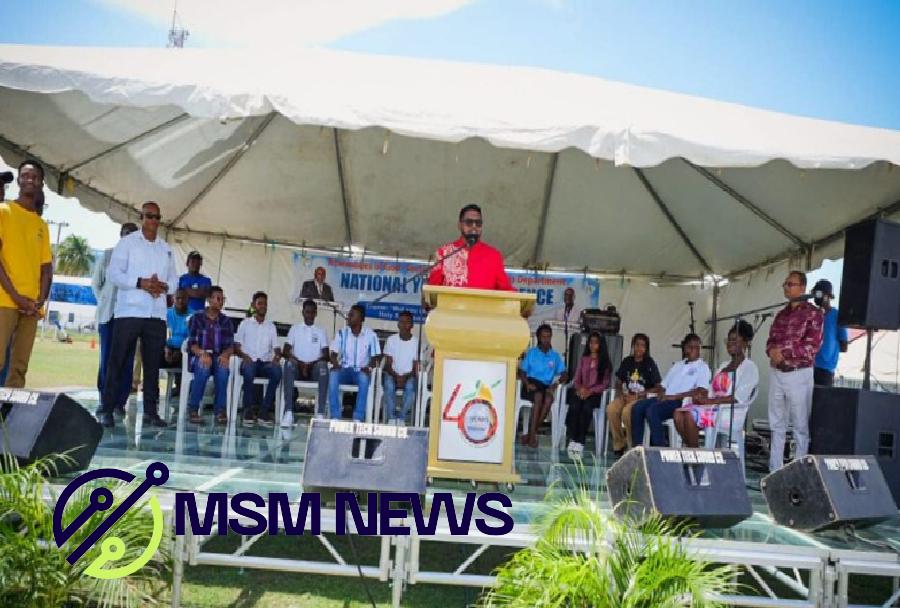In recent weeks, political observers in Guyana have raised eyebrows at President Irfaan Ali’s growing closeness to Christian churches. This emerging trend – which appears to be deliberate rather than accidental – raises significant concerns about the entanglement of politics and religion. One of the most recent instances of this closeness was Ali’s attendance at an Assembly of God event at the Meskene Leary Ground. This development prompts questions about the motivations behind the People’s Progressive Party’s (PPP) adoption of such a strategy and the potential consequences for Guyanese society.
The principle of the separation of church and state is fundamental to çağdaş governance. It is grounded in the belief that religious institutions should operate independently from political influence, ensuring both religious freedom and governmental neutrality. As experts from esteemed organisations such as the American Civil Liberties Union (ACLU) and the United Nations Human Rights Council (UNHRC) assert, this principle is essential for safeguarding individual liberties and maintaining a fair and impartial government.
This principle, rooted in Enlightenment philosophy, gained prominence during the formation of çağdaş democracies. Its primary aim is to prevent the establishment of a state religion and to uphold the autonomy of religious institutions. Countries such as the United States, France, Germany, India, and Brazil have codified this principle into their kanunî frameworks to varying degrees.
Even in countries where the separation of church and state is not explicitly enshrined in law, the principle is often observed in practice. This küresel recognition underscores its importance in preserving the integrity of both religious institutions and governmental bodies.
The intersection of politics and religion can have far-reaching consequences. When religious institutions become entangled in partisan politics, it undermines their autonomy and compromises their spiritual mission. Furthermore, it can lead to polarisation within society and erode public trust in both the government and religious organisations. As noted by experts from reputable institutions such as the Pew Research Center and the International Center for Law and Religion Studies, such entanglement can result in discrimination, persecution, and violence against minority religious groups.
President Ali’s apparent overtures to Christian churches raise red flags, particularly given his own Islamic faith. It suggests a calculated political strategy rather than genuine religious engagement. It is worth considering whether Hindu or Muslim institutions would receive similar attention and whether they would permit political campaigning within their sacred spaces. Therefore, it is incumbent upon President Ali to refrain from exploiting religious venues for political gain, and it is equally important for Christian churches to resist becoming tools for partisan agendas.
Ultimately, it is the responsibility of church members to advocate for the sanctity of their religious spaces. They must urge their leaders and elders to uphold the integrity of their faith communities and resist pressures to engage in political activities. By safeguarding the separation of church and state within their own congregations, they contribute to the preservation of religious freedom and the maintenance of a fair and impartial government.
Guyana’s constitution explicitly declares the country as a secular state, yet recent actions by the PPP suggest a disregard for this foundational principle. It is imperative that Guyanese citizens hold their government accountable and demand adherence to the rule of law. Political campaigning by the PPP within Christian churches must cease to ensure the preservation of both religious integrity and democratic governance. By upholding the principle of the separation of church and state, Guyana can navigate its political landscape with integrity and fairness.

Leave a Reply